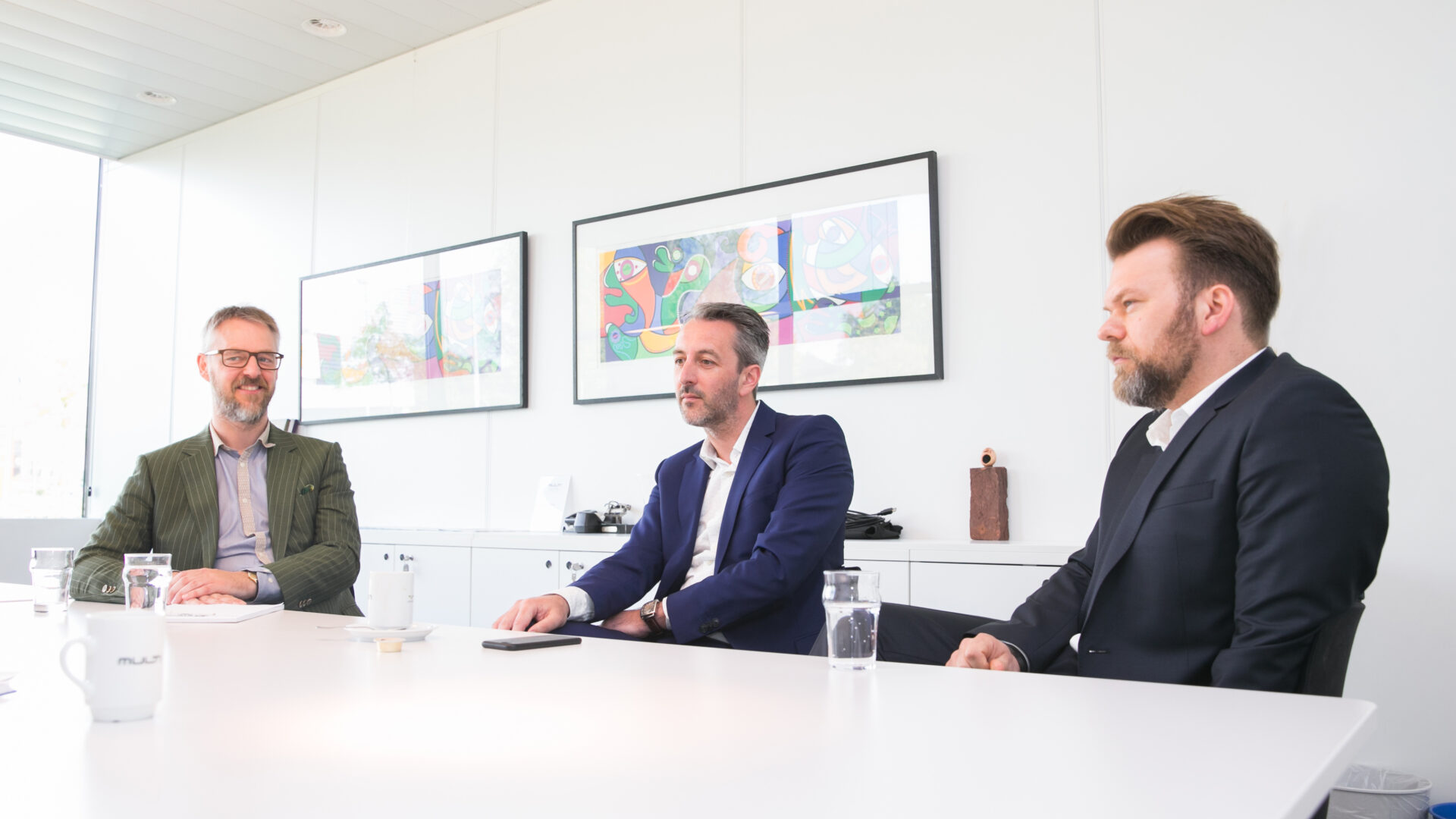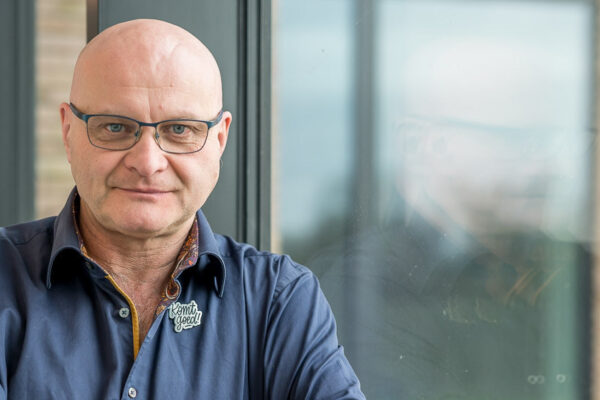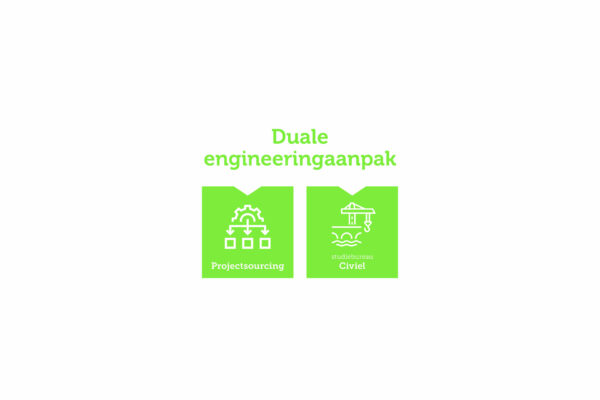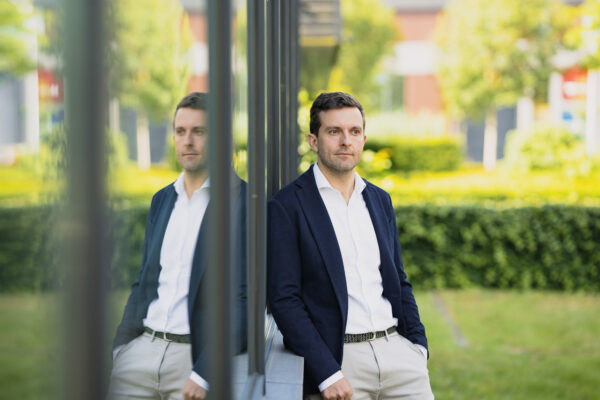MULTI.engineering: Belgian Roots, International Outlook
Internationalization is in the DNA of MULTI.engineering. Discover how we translate this into our markets, clients, and employees.

The world is a village ... Since its inception, MULTI.engineering has continuously pursued internationalization. Niko Fierens, Wouter Van Goeye, and Nicolas Van Goeye explain how the international dimension has become increasingly important in terms of markets, clients, experts, partners, and shareholders.
Is the international aspect in the DNA of MULTI.engineering?
Wouter Van Goeye: Yes and no. Although we are originally a 100% Belgian company, we quickly turned our gaze beyond our borders. Over the years, we have launched several foreign start-ups, such as Pharos and Maridea in the Netherlands and Polaris in Slovakia. Additionally, we have completed two acquisitions in the Netherlands: Force Company and Project Profession.
Nicolas Van Goeye: Our clients were already active in various parts of the world, especially in the maritime business. From the start, we expanded our horizons and began collaborating intensively with partners and experts in countries like Romania, Serbia, Bulgaria, and Slovakia.
Why?
Niko Fierens: For three reasons: a shortage of maritime knowledge in Belgium, the retirement of many former employees of Boelwerf who were active with us, and the relocation of ship production from Western Europe to other regions. A similar phenomenon is seen today in other sectors: as production disappears, the service sector follows. Knowledge is inherently linked to production. Applied to MULTI.engineering, you cannot find engineering knowledge exclusively locally if the link with production weakens. The financial crisis certainly accelerated this process.
“Foreign shareholders keep us sharp”
Your shareholders are not exclusively Belgian either.
Nicolas Van Goeye: They are still mostly Belgian, but it is true that some shares are in Slovak and Dutch hands. This is no coincidence. From the outset, we forged international partnerships, for example with Damen and IHC in the Netherlands. We also established companies with local people in Slovakia and Vlissingen.
Wouter Van Goeye: Having shareholders with a different culture is undoubtedly a good thing. They view our company through a different lens, which keeps us sharp.
Niko Fierens: Absolutely. We are determined to further open MULTI.engineering's shareholding to international employees. We continue to look for opportunities to develop extra activities outside our current work area with employees or partners.
However, the level of internationalization differs significantly between your business unit Maritime & Offshore and the business units Industry, Building & Infra.
Nicolas Van Goeye: Indeed. Many of our industrial clients are multinationals, just like the clients of Maritime & Offshore. However, there are clear differences: our business within Industry, Building & Infra mainly takes place in Belgium, and our services are provided primarily by Belgian experts. This is logical because, in the context of project sourcing, we go to the clients ...
Niko Fierens: While our business in Maritime & Offshore is 100% international. We have now appointed representatives in China and the Middle East and are building a partnership in the US. The world is our market, which means we must be able to be present everywhere. This translates into our experts population: in Maritime & Offshore, there are experts from more than 20 different nationalities.
Has this evolved systematically?
Wouter Van Goeye: Yes. Typically, it involves experts who have emigrated to Belgium and the Netherlands over the years. The working language is English in Maritime & Offshore.
Niko Fierens: But the influx from education is becoming increasingly diverse. I regularly give guest lectures at local universities. When I first did this, all the students had Flemish surnames. Recently, a third of the students had names with clearly foreign roots. I see this as a positive evolution because it shows that the population of future engineers increasingly reflects the composition of our society.
How easy or difficult is it for foreign experts to adapt to life in Belgium or the Netherlands?
Niko Fierens: I think we often underestimate this. For example, learning Dutch is often not easy because they hardly use it at work. Especially in the Maritime & Offshore sector, English is the working language.
Nicolas Van Goeye: We try to support them as much as possible, for example by helping them find suitable housing. They can, of course, come to us for all practical questions.
Wouter Van Goeye: It is important that they feel comfortable with us. Once a month, we organize an office lunch, where everyone is present. Some employees take the initiative to prepare a meal from their own culture for everyone. This way, we get to know each other better in a different way.
Niko Fierens: But outside of work, their social and family life is often more limited. While we can easily meet with our family or friends nearby, our foreign colleagues often give up a lot to help us become a successful company. We will certainly pay more attention to this in the coming months and years.
How does the search for new employees proceed?
Niko Fierens: We are continuously looking for people, not only in Belgium and the Netherlands, but also beyond. The maritime sector is still relatively well represented in Northwest Europe, with several major shipping companies. And for many shipyards, the decision-making center is still in our region. However, we are increasingly hiring foreign experts. Students are also becoming more international. We notice that many students have already studied in various countries. I am convinced that our experts population will become much more diverse in the coming years.
Wage cost advantage or disadvantage
Compare the markets you target for Industry, Building & Infra and Maritime & Offshore.
Wouter Van Goeye: They are hardly comparable. Only 10 to 15% of the revenue of Maritime & Offshore comes from Belgium. The majority comes from the rest of the world, with the Netherlands still leading. But this fluctuates. For example, Singapore was a very important market for us last year, as was the US.
For Industry, Building & Infra, Belgium is the primary market. Project sourcing mainly takes place in our country. Even in the Netherlands, the country we are closest to, it is organized completely differently. The number of projects there is much lower than in our country.
Do foreign markets make it harder for MULTI.engineering to sell your expertise?
Niko Fierens: No, knowledge, expertise, and experience are the most important criteria. Clients don’t think it’s crucial where it comes from. In the US, there is a more protectionist reflex, but engineers are often more expensive than ours. So, we have a wage advantage there. This also works in the opposite direction: sometimes we compete against engineering firms with much lower labour costs. We try to compensate for this labour cost disadvantage with our knowledge and experience. Sometimes we also work with foreign subcontractors, but the coordination always remains in our hands.
Wouter Van Goeye: Even in Industry, Building & Infra, and our engineering firm Civil & Structural, we sometimes rely on foreign subcontractors to have sufficient capacity. However, it makes coordination more complex. There are not only cultural and language differences, but the various time zones also sometimes cause issues. The same goes for legal regulations. For example, we have to extend the confidentiality obligation to defend our clients’ commercial interests to our subcontractors. This requires a lot of attention and time.
Nicolas Van Goeye: Working with foreign subcontractors does not automatically yield cost advantages: it involves more coordination and thus more work hours. But it is a solution to address a lack of capacity, although this only applies to large projects. We make a lot of effort to debrief extensively and draw the right lessons for even better collaboration in the future. For smaller assignments, it is unfortunately not realistic to work with foreign subcontractors: the extra workload in terms of coordination is too heavy.
Thank you for this conversation.
Having shareholders with a different culture is undoubtedly a good thing. They view our company through a different lens, which keeps us sharp



